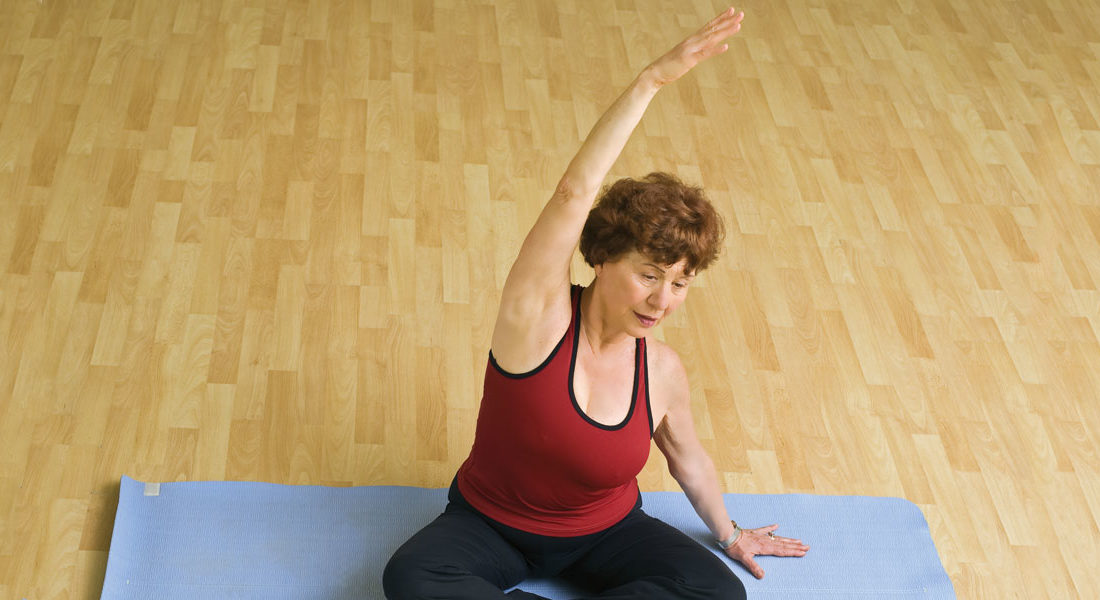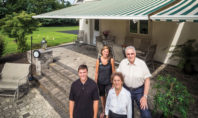September is Healthy Aging Month

September is Healthy Aging Month, a time to consider the positive side of growing older and celebrate the steps older adults, often in collaboration with health care professionals, take to stay healthy, happy, and independent.
In a wide-ranging conversation with Jason Meixsell, Area Rehabilitation Manager, HCR-ManorCare, he discussed why people are living longer, emerging techniques to keep people limber and active and personal experiences that led him into a profession that directly influences and helps people in their quest to stay young and fit.
Meixsell attended Misericordia University, graduating in 1999 with a B.S. in psychology, M.S. in occupational therapy and a certificate of gerontology. He’s been with HCR-ManorCare for 15 years, working first as a staff occupational therapist and then as a director of rehabilitation within its skilled-nursing, short-term rehabilitation facilities.
For the past 10 years, he’s been working in ManorCare’s Outpatient Therapy Department, which provides onsite outpatient therapy services to senior living communities such as personal care homes, assisted living facilities, independent living facilities, adult day programs and senior high-rises. The department also works with local home health and hospice agencies to provide services for those companies.
“The biggest recommendation I have is to stay active, both physically and mentally.”
– Jason Meixsell, Area Rehabilitation Manager, HCR-ManorCare
In your experience, do you find that people are living longer, healthier and active lives?
Yes, I find that older adults today are more conscientious about their health and have a strong desire to be healthy and remain active and independent.
What do you attribute to people living longer?
Today there is more information available, and health care consumers are much more involved in their health care. People are receiving routine check-ups and are being much more proactive with their health care, rather than reacting when bad things happen.
What do you recommend people do to stay healthy as they age?
The biggest recommendation I have is to stay active, both physically and mentally. There is the adage “use it or lose it.” If any muscle of the body isn’t used, it will become weak. Staying active is the key, and as they say, “a body in motion, stays in motion.”
What’s one exercise that everyone should do?
It’s hard to narrow it down to just one, but walking is very important. It doesn’t have to be intense, but always consult a physician before beginning any program. Simply getting up and taking a short walk around your living room during TV commercials can be good. It gets the joints moving and blood circulating.
If the person is physically capable, a walk either outside, on flat/even surfaces, or even inside a shopping center is good exercise. Another thing I recommend for older adults is light resistive exercises. Again, you should always seek the advice of a health care practitioner before beginning any program, but resistive training helps keep muscles conditioned. This can range from going to a gym to simply using canned goods as weights around the home.
Similarly, are they any activities people should do to stay alert mentally?
Anything that challenges a person’s “thinking muscles” is good. This can include reading, doing puzzles, word searches, etc. Try new activities that challenge the mind, since doing the same type of activity repetitively may not stimulate the brain as much as some new activities.
What new techniques are emerging to help people stay healthy and active?
In rehabilitation, the use of physical agent modalities such as electric stimulation, ultrasound and diathermy has assisted the therapy process immensely. We’re able to use these techniques, where indicated and when ordered by the physician, to aid in reducing pain and inflammation, increasing cardiovascular health and decreasing urinary incontinence.
What about social activities – how do they fit in as a positive aspect of growing older?
Being among others whether they’re in your same age group or not is beneficial. It may help decrease depression, and when among others you realize that you might not be the only person going through something in your life. You may have an aching joint and find out that the person you are socializing with has the same type of pain. It shows you aren’t alone, and by speaking with one another, you can share healthy things that can be done to live with a chronic condition.
What gives you the most satisfaction in your job?
The most satisfying part of my job is when I can help a person have a greater quality of life. For example, a few years ago I was working with a client who had dementia. Prior to her moving into the personal care home, in which we provided services, she had fallen and fractured her hip.
As an occupational therapist, I was working with her to increase her independence with her self-care, among other things. She had difficulty safely standing up and maneuvering to the bathroom. And once she made it to the bathroom, her ability to remain in a standing position to perform care was diminished.
One day, after practicing this for several times, she was able to safely stand and walk into the bathroom where she combed her hair and put her lipstick on. She smiled and looked at me and said, “Now I feel alive.”
5 Quick Tips for Healthy Aging
Take Cat Naps
A study revealed people who take naps are 37% less likely to die from heart disease.
Mix & Mingle with the Right Crowd
There is clear link between having the right social ties and living a longer life. Surround yourself around positive people who help lift you up and encourage you to follow your dreams.
Stay Active
Exercise regularly. It is recommended to get least 2.5 hours of exercise a week. Not everyone likes the gym but how about a nice nature walk or dancing?
Set Realistic Goals
Research has shown those who have a clear sense of purpose and drive have a less chance of getting Alzheimer’s disease.
Budget and Spend Your Money Wisely
Create a budget. Know where your money is going. Try to cut down your expenses. Not being able to afford the things you want to do in life can add stress your life.
Source: Healthy Aging Magazine
















